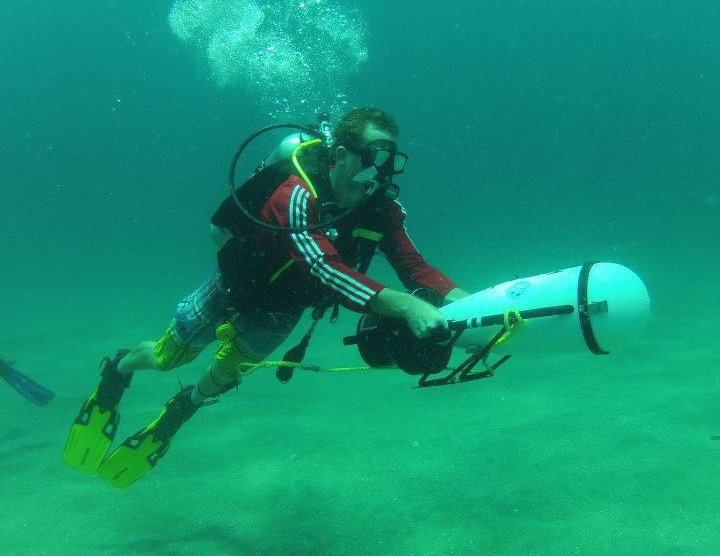Document Type
Article
Publication Title
PLoS ONE
Abstract
We test whether the phenotypic variance of symbionts (Symbiodinium) in corals is closely related with the capacity of corals to acclimatize to increasing seawater temperatures. Moreover, we assess whether more specialist symbionts will increase within coral hosts under ocean warming. The present study is only applicable to those corals that naturally have the capacity to support more than one type of Symbiodinium within the lifetime of a colony; for example, Montastraea annularis and Montastraea faveolata. Methodology/Principal Findings: The population dynamics of competing Symbiodinium symbiont populations were projected through time in coral hosts using a novel, discrete time optimal-resource model. Models were run for two Atlantic Ocean localities. Four symbiont populations, with different environmental optima and phenotypic variances, were modeled to grow, divide, and compete in the corals under seasonal fluctuations in solar insolation and seawater temperature. Elevated seawater temperatures were input into the model 1.5°C above the seasonal summer average, and the symbiont population response was observed for each location. The models showed dynamic fluctuations in Symbiodinium populations densities within corals. Population density predictions for Lee Stocking Island, the Bahamas, where temperatures were relatively homogenous throughout the year, showed a dominance of both type 2, with high phenotypic variance, and type 1, a high-temperature and high-insolation specialist. Whereas the densities of Symbiodinium types 3 and 4, a high-temperature, low-insolation specialist, and a high-temperature, low-insolation generalist, remained consistently low. Predictions for Key Largo, Florida, where environmental conditions were more seasonally variable, showed the coexistence of generalists (types 2 and 4) and low densities of specialists (types 1 and 3). When elevated temperatures were input into the model, population densities in corals at Lee Stocking Island showed an emergence of high-temperature specialists. However, even under high temperatures, corals in the Florida Keys were dominated by generalists. Conclusions/Significance: Predictions at higher seawater temperatures showed endogenous shuffling and an emergence of the high-temperature Symbiodinium specialists, even though their phenotypic variance was low. The model shows that sustaining these "hidden" specialists becomes advantageous under thermal stress conditions, and shuffling symbionts may increase the corals' capacity to acclimatize but not adapt to climatechange-induced ocean warming.
DOI
10.1371/journal.pone.0009185
Publication Date
2-12-2010
Recommended Citation
Van Woesik, R., Shiroma, K., & Koksal, S. (2010). Phenotypic variance predicts symbiont population densities in corals: A modeling approach. PLoS ONE, 5(2).



